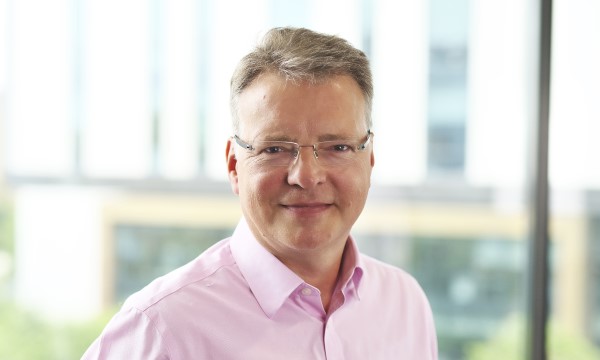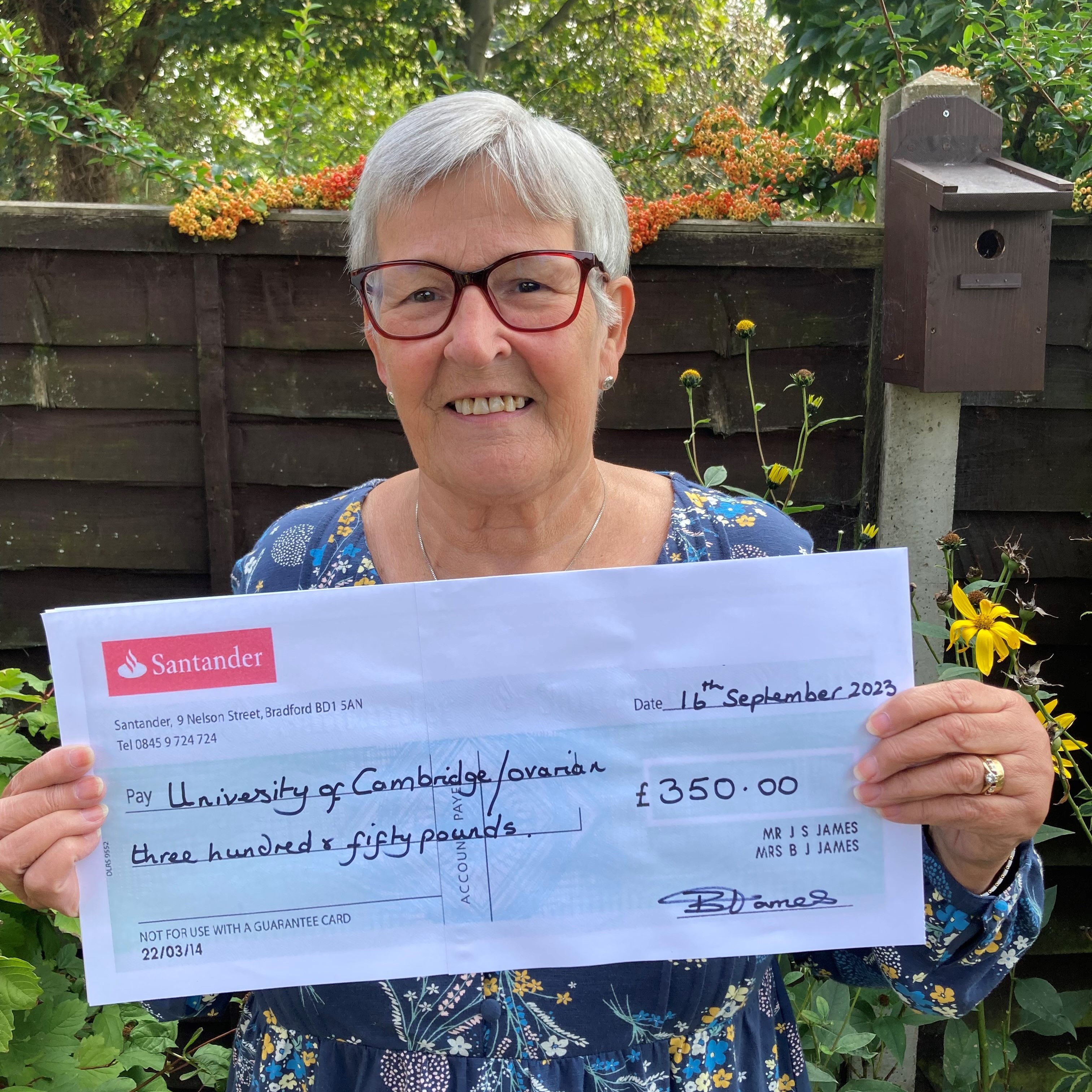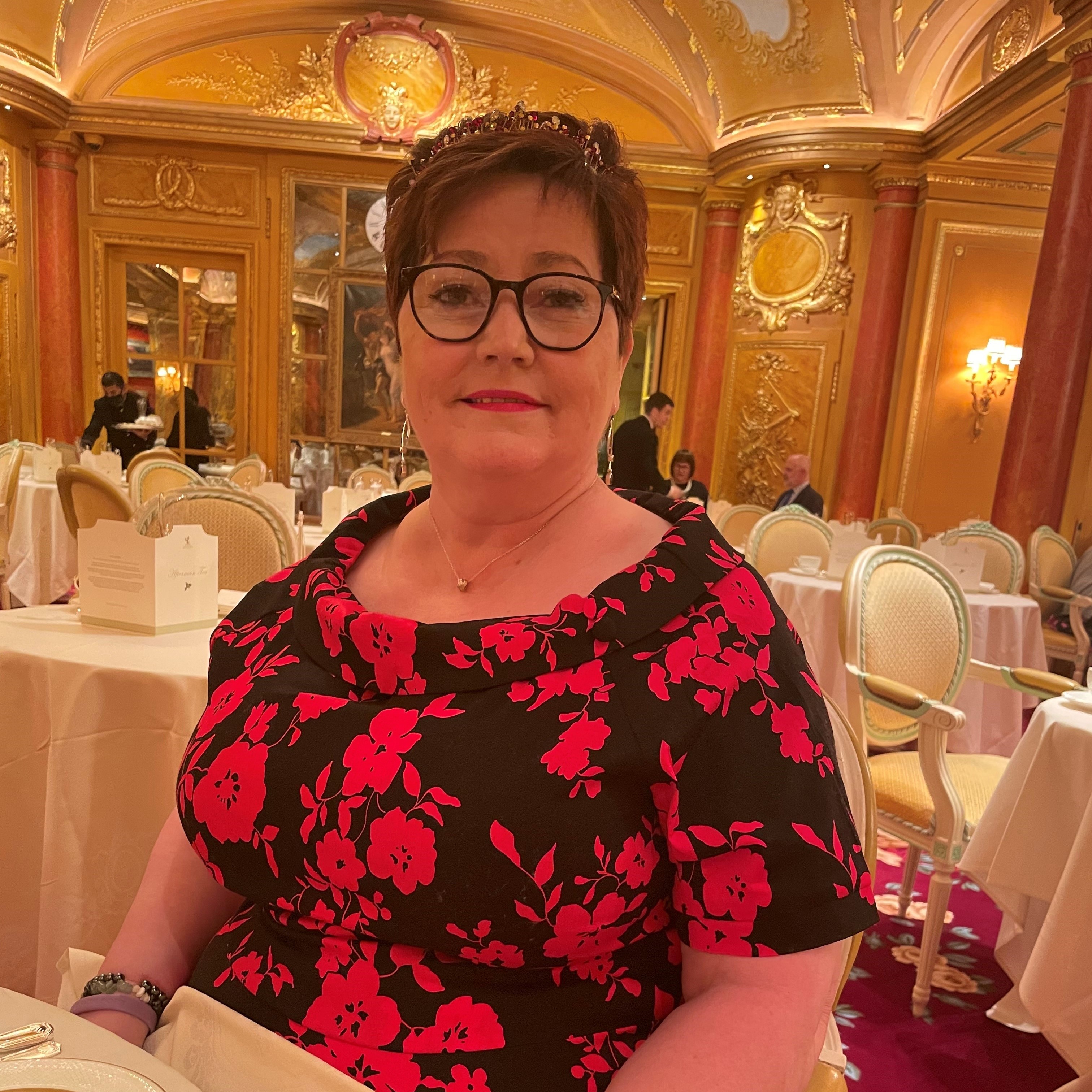
I’ve been an oncologist and consultant in ovarian cancer for over 20 years, and the progress made in preventing, diagnosing and treating the disease wouldn’t have been possible without Cancer Research UK funding.
The charity recently launched its ‘Together We Are Beating Cancer’ campaign, shining a light on the special moments people like Barbara and Lorraine, and Shirley, Melanie and Margaret have been able to enjoy as a result of research.
For those of us carrying out the research, this is always moving, making it very real, helping us to see progress and think about what we’re trying to achieve.
Ovarian cancer is so complex and we still have a lot more to discover, but compared to when I was training in the late 1990s, we can now talk much more positively about treatment choices for patients.
Advances so far
What has changed between then and now is we’ve uncovered how complex what I call the wiring diagram of ovarian cancer is.
We were in the wilderness on this for a long time and a lot of my work in the last 20 years has been focused on trying to make sense of the complexity. How do we see the wood for the trees?
Another big difference is that – thanks in large part to Professor Sir Stephen Jackson, who recently moved his lab to the Cancer Research UK Cambridge Institute, having benefited from the charity’s grants throughout his career – we have discovered a group of medicines known as PARP inhibitors.
These PARP inhibitors mean we can control ovarian cancer for longer and change the outlook for people with the disease. They’re also now the building blocks for medicine combinations we hope will provide a cure.
Collaboration is key
I think the biggest challenge to advancements is being able to move between doing intensive studies of individual patients and looking at samples from clinical trials and larger scale studies.
The complexity of the analysis required is such that we need to keep moving between different scales of study.
Trying to get enough high-quality data – because ovarian cancer is rarer than some cancers, affecting around 7,400 people in the UK each year – is difficult.
A critical component to coping with this challenge is international collaboration and through Cancer Research UK funding we’ve established a dedicated ovarian cancer research programme here in Cambridge, giving us a vehicle to really engage with patients and understand what they want, and what’s important to them, then design our own studies and better engage in the all-important global relationships.
Continuing to improve
These kinds of infrastructures we’re able to put in place enhance the research environments of Cancer Research UK’s Cambridge Institute and Centre, and that enables us to bring in more money from other sources.
For example, we’re part of a big machine-learning project with GE HealthCare, creating a visualisation platform for patients to be better informed and in control of choices relating to their treatment.
At the moment, there are limitations in data sets and trying to bring everything together in real time.
My vision for ovarian cancer is that, through advanced imaging methods and genomics, we’ll pinpoint exactly when in their journey a patient will really benefit from certain types of treatment. Importantly, this will mean some patients won’t require chemotherapy as they’ll instead be able to receive combinations of tablet-based treatments based on PARP inhibitor medicines. In addition, we want to reduce the uncertainty when choosing some chemotherapy treatments and help patients find clinical trials that might better match their cancer’s wiring diagram.
An exciting future
I’m also a co-lead of the Mark Foundation Institute for Integrated Cancer Medicine at the University of Cambridge.
This is our approach to dealing with very complex diseases like ovarian cancer and what we’re trying to do is bring together all the things we can measure in a patient, from the clinical features to the imaging, molecular tests and so on.
By studying patients in this very detailed way, we think we’re going to do a better job of figuring out the complexity of their disease and understanding patterns as they occur.
It’s exciting the programme will be one of three research institutes housed in the new Cambridge Cancer Research Hospital once that’s open. Embedding researchers in an NHS setting, with staff from Addenbrooke’s Hospital, can only lead to huge benefits in patient care.
To help Cancer Research UK continue supporting Prof Brenton and fellow researchers to carry out work that has saved an estimated 114,000 lives from cancer in the East of England since the mid-1980s, you can make a donation at cruk.org/donate
Here are the stories of Barbara and Lorraine, who are showing their support for Cancer Research UK’s Together We Are Beating Cancer campaign...
Barbara
My names is Barbara James and I am 70 years old. I live in Great Barford near Bedford, with my husband Jim. Next year will be our 50th wedding anniversary. We have two married sons who have given us four wonderful grandchildren.
I retired from nursing in 2016 after 45 years of service in the NHS. For the last four years I worked as a specialist Community Palliative Care nurse, so I had been well acquainted with cancer.
In January 2021, during the Covid pandemic, I was diagnosed with stage 4 High Grade Serous Ovarian Cancer (HGSOC). This came as a huge shock to me and the family as I had only gone to the GP because I had found a lump in my groin. This turned out to be cancer spread.
Looking back, over the previous few months, I had been experiencing symptoms of weight loss, tiredness and loss of appetite, but I had put this down to looking after my sister who had been ill.At my first oncology appointment a plan for treatment and surgery was discussed. The following week I commenced the first cycle of my chemotherapy. In all I had four cycles before the end of April 2021 when I was then admitted into Addenbrooke’s for debulking surgery. A few weeks later I finished the final two cycles.
During this time I was also given 18 cycles of bevacizumab (a targeted cancer drug). Finally, the treatments all finished in July 2022 and at the time my scan showed no evidence of disease.
Sadly, a routine scan in January 2023 showed disease progression and once again I commenced on chemotherapy. In July this finished and I started on a PARP inhibitor niraparib as maintenance therapy. In my mind this could give me many more years with my family. Following positive results in clinical research PARP inhibitors were approved for use in ovarian cancer patients in 2014.
There have been many very special moments since my diagnosis that I have been able to celebrate, thanks to research.
In July my eldest grandson turned 18 and, in the same month, he finished his A-levels and left school.
In August I reached my 70th birthday, a milestone I wasn’t sure I would see. I celebrated by holding an afternoon tea for 40 of my friends and family, enjoying a wonderful time on a beautiful sunny day.
Instead of presents I asked for donations to two charities very close to my heart. Thanks to everyone’s generosity I have been able to donate £350 towards cancer research in ovarian cancer.
Lorraine
My name’s Lorraine McKitterick. I was diagnosed with stage 3 ovarian cancer in September 2019, when I was 57.
From that day, I can’t fault the treatment I’ve had. I was offered a chance at life by going on a two-year trial known as ATHENA. This involved a PARP inhibitor being used in combination with another type of targeted treatment and I’m convinced if I’d not taken part in the trial I wouldn’t be here today – I’m so grateful for research.
After this experience, to celebrate life, I did something every month for a year after turning 60! There was a time I didn’t think I’d see this milestone age and the first of my celebrations was at the Ritz.

















